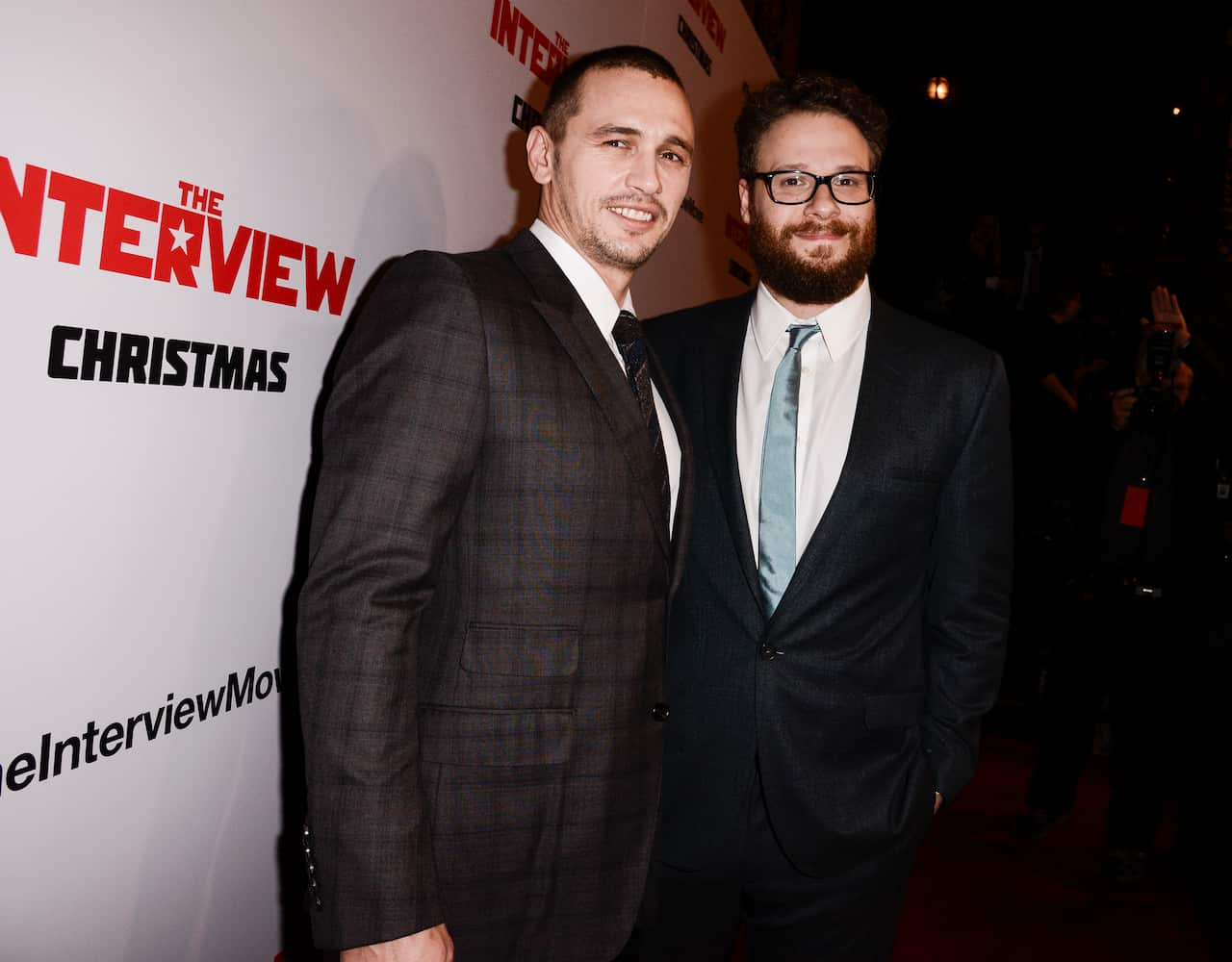- If you're unsure of the backstory here's our timeline of the Sony hacking scandal
Sony Pictures has cancelled the Christmas Day release date of The Interview, a parody film which has angered North Korea and triggered chilling threats from hackers.
"In light of the decision by the majority of our (theatre) exhibitors not to show the film The Interview, we have decided not to move forward with the ... theatrical release," it said in a statement on Wednesday.
The studio said it was "deeply saddened at this brazen effort to suppress the distribution of a movie, and in the process do damage to our company."
Sony also said they stood by the filmmakers of "The Interview," a comedy about two journalists recruited by the CIA to assassinate North Korean leader Kim Jong Un.
Earlier, US cinemas canceled canceled screenings, including the film's red-carpet New York premiere after mysterious computer hackers issued a chilling threat invoking the September 11, 2001 attacks in an ominous warning to any movie-goers planning to see the film.
The 9/11 threat - downplayed by US authorities - comes as lawyers file two class action suits against the embattled Sony studio, claiming it failed to protect employees' data, stolen three weeks ago in a huge cyber-attack.
A US official speaking on condition of anonymity said federal investigators have connected North Korea to the hacking.
US President Barack Obama told ABC News in an interview that the administration will be "vigilant" and will alert the public if there is evidence of a "serious and credible" threat.
But for now, Obama says: "My recommendation would be that people go to the movies."

The online Daily Beast alleged that it had seen emails indicating at least two US government officials had seen a rough cut of "The Interview" in which Kim's head explodes, and given it their blessing.
But the State Department denied that it had given its backing to the Hollywood comedy which has angered North Korea by depicting a fictional plot to assassinate its leader Kim Jong-Un.
"We're not in the business of signing off on the content of movies or things along those lines," said State Department spokeswoman Jen Psaki.
"As we've noted before, entertainers are free to make movies of their choosing, and we are not involved in that."
Psaki confirmed that top Asia diplomat Daniel Russel had met with executives from Sony "as he does routinely with a wide range of private groups and individuals, to discuss foreign policy in Asia."
But she denied the US ambassador on human rights in North Korea Robert King had viewed the movie.
"Our message in public and private is the same. We respect artists and entertainers' right to produce content of their choosing. We have no involvement in such decisions," Psaki added.

